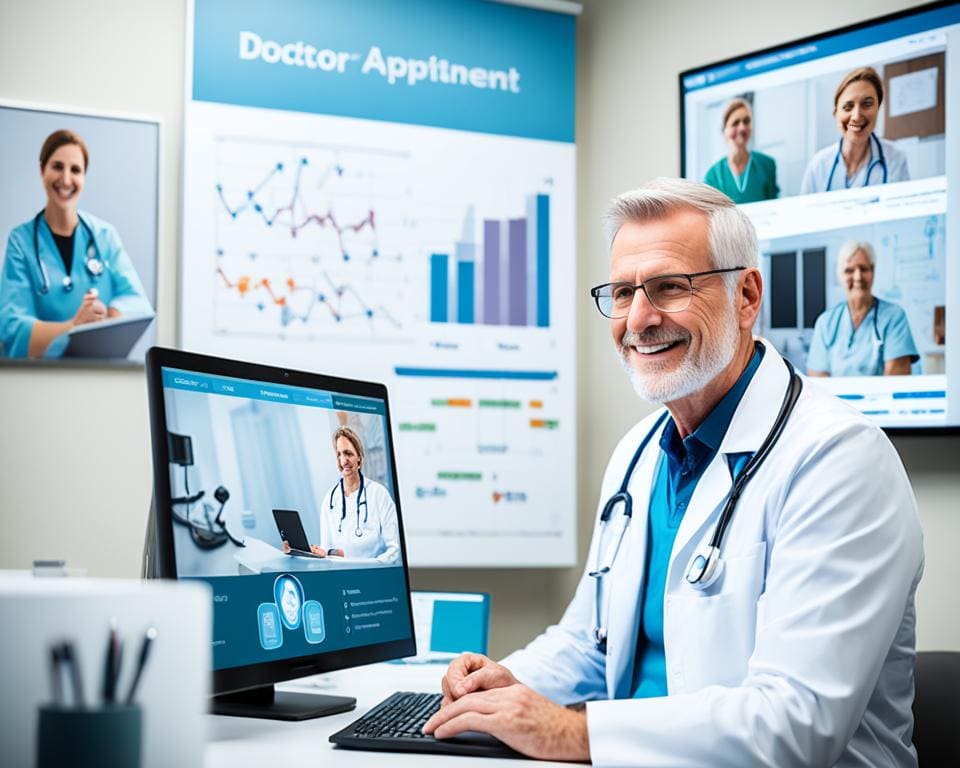The healthcare landscape is undergoing a profound transformation, driven by digital health trends that promise to redefine how we deliver and receive care. At the forefront is the growing role of telemedicine, enabling patients to access healthcare technology remotely. This shift is further enhanced by innovations such as artificial intelligence in healthcare, which paves the way for personalized medicine tailored to individual needs.
Statistics reveal a staggering increase in telehealth utilization, with a rise of over 154% during the pandemic, as identified by McKinsey & Company. This surge illustrates the crucial role of virtual healthcare solutions in making services more accessible, especially for those in under-resourced regions. As we embrace these advancements, it is clear that the future of patient care lies in the integration of emerging technologies with established practices.
Transformative Impact of Telemedicine on Patient Care
The integration of telemedicine into healthcare systems offers a new frontier in patient care. As telehealth services develop, they reshape how patients access medical expertise, enhancing the overall experience for both providers and recipients. The rise of these digital methods underscores a commitment to a more accessible, efficient, and patient-centric approach to healthcare technology.
Emergence of Telehealth Services
Telehealth services have gained traction as a viable way to deliver health care across vast distances. With the advent of advanced technology, healthcare providers can now perform consultations, diagnostics, and treatment plans without the necessity of physical appointments. This shift opens the door for patients seeking care from specialists they might not otherwise reach.
Enhancing Accessibility for Remote Patients
Geographic barriers often hinder access to essential medical services, particularly in rural areas. Telemedicine provides an efficient solution by allowing remote patients to consult healthcare professionals via video calls or secure messaging. This innovation not only makes healthcare more reachable but also promotes continuity of care, enabling better management of chronic conditions.
Cost-Effectiveness of Telemedicine Solutions
The cost-effectiveness of telemedicine continues to reveal itself as a key benefit. Virtual visits typically incur lower costs than traditional in-person consultations, significantly reducing the financial burden on both patients and healthcare systems. This affordability encourages more individuals to seek timely medical advice, which ultimately enhances overall health outcomes.

Wearable Technology in Healthcare: A Game Changer
Wearable technology is drastically changing the landscape of healthcare management, providing innovative solutions for real-time health monitoring. Devices like smartwatches and fitness trackers allow users to easily track vital signs such as heart rate, physical activity, and sleep patterns. This immediate access to health metrics can prompt users to make informed decisions about their well-being, paving the way for a healthier lifestyle. The Journal of Medical Internet Research highlights the significant impact these devices have on individual health management.
Health Monitoring through Wearable Devices
At the forefront of wearable technology in healthcare is the promise of comprehensive health monitoring. By continuously gathering data, these devices facilitate proactive health management. This information not only aids users in improving their daily habits but also fosters better communication with healthcare providers, leading to more personalized care strategies.
Big Data and Wearable Technology Integration
The integration of big data analytics with wearable technology is revolutionizing healthcare delivery. Healthcare providers can analyze extensive datasets derived from these devices to discern patterns and identify potential health issues. Such big data integration aids in crafting personalized treatment plans and enhances predictive healthcare, enabling timely interventions and improving outcomes. As noted in Nature Biotechnology, this approach marks a paradigm shift towards data-driven healthcare solutions.
Future Innovations in Wearable Health Tech
Looking ahead, the future of wearable technology in healthcare appears limitless with promising innovations on the horizon. Concepts such as smart contact lenses, biosensors, and integrated health devices are expected to push the envelope of personal health tracking and remote patient monitoring. Forbes identifies these future innovations as key enablers of enhanced patient engagement and care delivery. Advancements in technology not only empower users with actionable insights but also solidify a more connected healthcare ecosystem.









